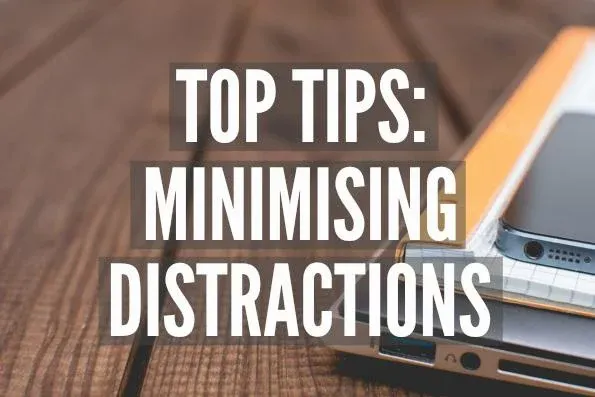How to limit distractions
It's no secret that we live in an age of distraction. We're all surrounded by technology, and it can be hard to avoid being consumed by it. But there are ways to limit your distractions so that you can get more done every day. Here are some tips for keeping yourself from being distracted:
Turn off notifications.
Turn off notifications on your phone.
Turn off notifications on your computer.
Turn off notifications on your tablet.
Turn off notifications on your watch and smart TV, if applicable to you (these types of devices are often more susceptible than others).
Work somewhere quiet.
If you're not able to work in a quiet place, wear headphones. If you can't wear headphones and listen to music, put on some white noise.
Do the most difficult task first.
One of the best ways to limit distractions is by starting on the most difficult task first. It will set the tone for the rest of your day, and it may seem like an obvious suggestion, but many people fall victim to this mistake every day.
If you have a long list of things to do, try putting off taking care of any small tasks until later in the day so that they don't take up too much mental energy right off the bat. When we're stressed out or tired we tend to want our attention focused on immediate needs rather than long-term goals—and this can cause us to ignore bigger issues because they feel less urgent than smaller ones do at first glance!
Put your phone away.
The first thing you can do is turn off notifications. If you're constantly checking your phone, this will make it much easier for you to stay focused on what's important.
If that's not possible, put your phone in another room or on silent so that when you do need it, there's no temptation to use it immediately after getting back online with friends or family members (or even just seeing them). Try using an app like "Do Not Disturb" which prevents calls and texts from coming through while still allowing access if needed - but make sure they're turned off during work hours!
Another tip: don't check email every five minutes! Most of us get stuck in email ruts where we feel obligated just because we have something new waiting on us; try finding ways around this habit by setting up alerts for specific types of messages instead of having all sorts flowing into our inboxes at once every time someone sends something "important."
Use social media in moderation.
Social media is a huge distraction. It can be hard to keep your eyes off of it, especially if you're on the go and trying to multitask.
Don't check your phone while eating, driving or any other activity that requires you to pay attention! As much as we love our phones, they are not allowed at these times. If necessary, set up social media limits so that only certain times of day are designated for checking them (e.g., during lunchtime).
This doesn't mean totally eliminating social media from your life—just make sure it's used in moderation!
Get uninterrupted time every day.
You need to set aside time for yourself. No one can take your focus away from the things that matter most, but it's possible to distract yourself and prevent yourself from achieving what you want.
Don't let others interrupt you: If someone comes up to talk with you while they're in mid-sentence, politely excuse yourself from the conversation by saying "I need some time alone now."
Don't let yourself interrupt yourself: The same goes for when checking social media or email becomes an all-day activity; don't do it! Find other ways of spending time online if possible—like reading books or listening to music—so that this activity doesn't become part of your day-to-day routine.
Everyone can be more productive if they limit their distractions.
Everyone can be more productive if they limit their distractions. The key is knowing how to deal with them, so that you don't get sidetracked or lost in the details of your work.
Distractions are a normal part of life, and they're not always bad. For example: when you're on vacation in Hawaii, it's nice to have some down time each day where there's no one around but yourself and maybe some fishing poles nearby (if this sounds familiar, then congratulations—you're probably a human). But sometimes distractions help us accomplish tasks more quickly or efficiently than we would otherwise be able to do them alone (or without any distractions at all!).
Being distracted can be good too! Sometimes being distracted means we're able to focus better on certain tasks because our minds are wandering elsewhere instead of being stuck on one thing for long periods of time.* If this sounds appealing then great! Just remember though that whenever possible try not let yourself get distracted as much because then it won't help improve efficiency later down line either way though...so...you know what happens next right?
We’ve all been there. You’re working on something important, and then the phone rings or an email pops up. It happens to everyone, but if you can avoid distractions in your workplace, you’ll be more productive and keep your mind on the task at hand. It might seem like a small thing—putting your phone away for fifteen minutes—but it will make a huge d

.jpg)
.jpg)
.jpg)
.jpg)
.jpg)
